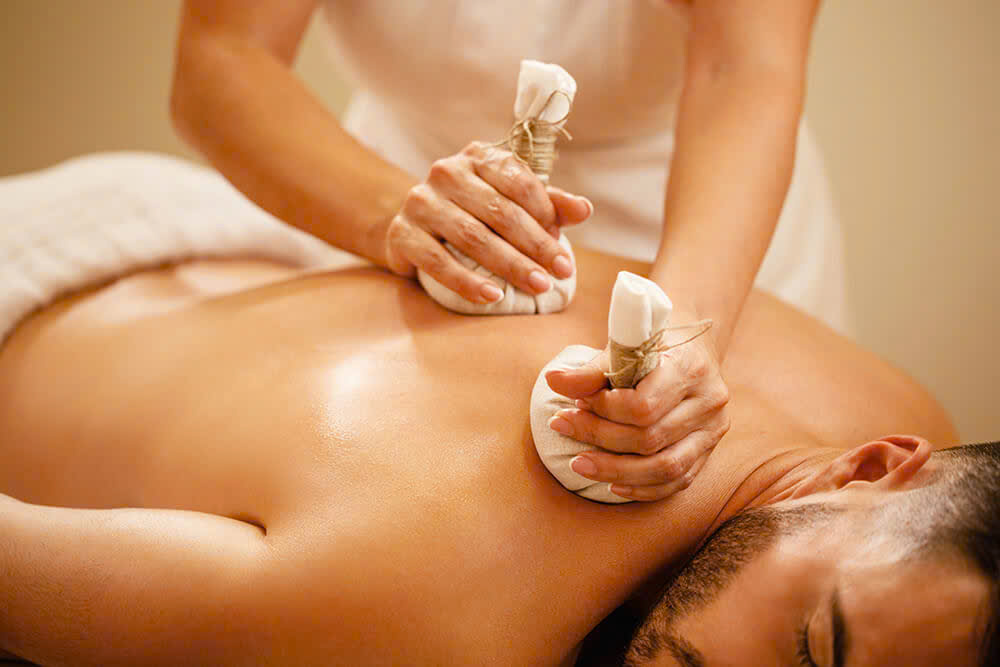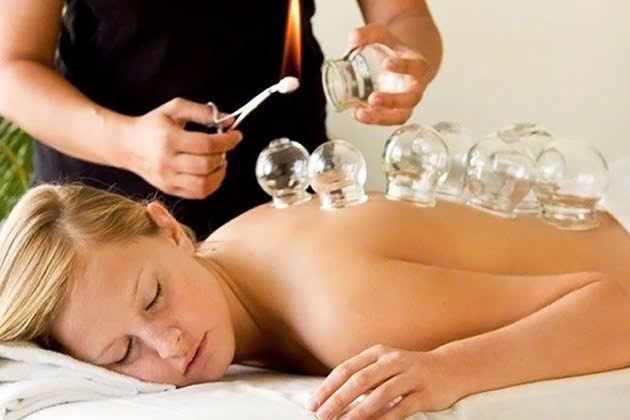Top Reasons You Feel Tired and How Massage Helps You Relax
In our fast-paced modern world, feeling constantly tired has become a common complaint. Chronic fatigue impacts our productivity, mood, and overall health, making it essential to identify its causes and explore solutions that promote well-being. One effective method to alleviate tiredness and boost energy is through massage. This ancient healing practice not only rejuvenates the body but also calms the mind, offering a natural remedy for fatigue and stress.

The Underlying Causes of Feeling Tired
Feeling tired frequently can stem from various physical, mental, and lifestyle factors. Understanding these causes helps in addressing the root of fatigue rather than merely masking symptoms. Fatigue isn’t just a matter of needing more sleep; often, it’s a warning sign of underlying issues that require attention.
Physical health issues, such as sleep disorders, nutritional deficiencies, and chronic illnesses, play a significant role in persistent tiredness. Poor sleep quality can be caused by conditions like sleep apnea, insomnia, or restless leg syndrome, disrupting restorative sleep cycles crucial for physical and mental health. Nutritional deficiencies, especially in iron, vitamin D, or B12, impair energy production and can leave you feeling drained.
Mental health factors like stress, anxiety, and depression can drastically affect energy levels. Stress triggers the release of cortisol, which, over time, depletes the body’s reserves and hampers restful sleep. Anxiety and depression can cause sleep disturbances, leading to a vicious cycle of exhaustion. Lifestyle choices such as sedentary behavior, excessive caffeine consumption, or irregular schedules also contribute to fatigue.
Environmental influences, including pollution, noise, and poor ergonomics at work or home, can subtly drain your vitality. For instance, prolonged exposure to screens without breaks strains the eyes and disrupts the natural circadian rhythm. Identifying and addressing these multifaceted causes is critical for restoring your energy and vitality.
Furthermore, modern society’s overcommitment often leads to burnout, a state of physical, emotional, and mental exhaustion. Continuous exposure to high stress levels depletes energy, diminishes motivation, and hampers the body’s ability to recover. Recognizing burnout as a sign of overreach is vital in prioritizing self-care strategies, such as massage, to aid in recovery.
In essence, fatigue is rarely caused by a single factor. It’s a complex interplay of health, emotional, and environmental elements. By pinpointing these causes, you can implement targeted solutions, including lifestyle adjustments, medical consultations, and relaxation techniques like massage, which have proven benefits in alleviating tiredness.

How Physical Tension and Stress Contribute to Fatigue
Physical tension and mental stress are two sides of the same coin, both capable of draining your energy and contributing to feelings of exhaustion. Understanding their connection helps in appreciating how massage can be an effective tool to combat fatigue by releasing tension and promoting relaxation.
When we experience stress, our muscles tend to contract involuntarily, resulting in tightness, pain, and reduced circulation. Chronic muscular tension can create a cycle where discomfort leads to further stress and fatigue, impairing physical recovery. Over time, this tension affects posture, mobility, and even internal organ functions, leading to a persistent sense of tiredness.
Mental stress, on the other hand, activates the sympathetic nervous system—the body’s “fight or flight” mode—resulting in increased heart rate, rapid breathing, and heightened alertness. While these reactions are useful in acute situations, sustained stress keeps the body in a state of hyperarousal, preventing the relaxation needed for restful sleep and restoring energy.
Engaging in a massage breaks this cycle by directly reducing muscular tension and calming the nervous system. Through targeted pressure and manipulation, massage helps loosen tight muscles, improve flexibility, and promote better blood flow to fatigued tissues. This physical relief translates into a profound sense of relaxation and reduced mental stress as well.
On a deeper level, massage stimulates the release of endorphins and serotonin—neurochemicals responsible for feelings of well-being and happiness. These naturally occurring chemicals play a crucial role in counteracting the effects of stress and fatigue, effectively helping you feel more energized and positive. Regular massage sessions can become a vital component of stress management, particularly for those who carry daily tension in their muscles and minds.
In addition, massage stimulates the parasympathetic nervous system—the “rest and digest” mode—encouraging your body to unwind, heal, and rejuvenate. It promotes deeper, more restorative sleep, which is essential in combating tiredness. This natural relaxation response is why many people report feeling refreshed and revitalized after a massage.
Overall, the interplay between physical tension, mental stress, and fatigue poses a significant barrier to feeling energetic and healthy. By incorporating massage into your wellness routine, you actively engage in releasing tension, balancing your nervous system, and restoring energy levels, making it an invaluable tool for anyone struggling with persistent tiredness.

The Role of Sleep Quality in Managing Energy Levels
Sleep quality is fundamental to maintaining high energy levels and overall health. Without adequate rest, the body cannot repair tissues, consolidate memory, or produce the hormones necessary for vitality. Despite sleeping enough hours, many individuals report feeling unrefreshed, indicating issues with sleep quality rather than quantity alone.
Factors that interfere with sleep quality are numerous, including stress, lifestyle habits, and underlying health issues. Anxiety and worry can cause difficulty falling asleep or frequent awakenings, reducing the proportion of restorative deep sleep. Similarly, exposure to blue light from screens late at night suppresses melatonin production, disrupting the sleep cycle.
Hormonal imbalances, such as cortisol spikes in response to stress, can also prevent restful sleep. High cortisol levels at night interfere with the natural drop of stress chemicals, leading to fragmented sleep and increased fatigue during the day. Addressing these imbalances requires holistic approaches that may include relaxation techniques like massage, which helps to reduce stress hormones and enhance sleep quality.
Sleep hygiene plays a crucial role in optimizing rest. Simple practices such as maintaining a consistent sleep schedule, creating a comfortable sleep environment, and avoiding stimulants in the evening can significantly improve sleep quality. Incorporating relaxation methods like massage into your bedtime routine can further assist in preparing your body for deep, restorative sleep.
Massage not only alleviates physical discomfort that may impede sleep—like muscle tension or pain—but also reduces anxiety and promotes relaxation. Therapeutic massage techniques can lower cortisol levels and activate the parasympathetic nervous system, helping to calm the mind and body before sleep. Many people find that regular massage sessions create a sense of routine that signals to their body it’s time to unwind and rest.
Furthermore, massage stimulates blood circulation and lymphatic drainage, which are vital in removing metabolic waste products accumulated during wakefulness. Enhanced circulation improves oxygen and nutrient delivery to tissues, facilitating repair and recovery overnight. This physiological benefit significantly contributes to waking up feeling energized and refreshed instead of sluggish and exhausted.
In sum, sleep quality is a cornerstone of sustained energy and vitality. When combined with stress-reduction practices like massage, improving sleep quality becomes a powerful strategy for combating chronic tiredness. By fostering better sleep hygiene and incorporating massage into your wellness routine, you can rejuvenate your body’s natural rhythms and wake up feeling revitalized every day.
The Therapeutic Power of Massage for Rejuvenation and Energy
Massage is more than just a relaxing indulgence; it’s a therapeutic intervention with profound effects on physical and mental well-being. Its ability to enhance circulation, reduce stress, and promote relaxation makes it an essential component in combating fatigue and restoring your energy reservoir.
One of the primary ways massage helps to rejuvenate the body is through improving circulation. When muscles are tense or sore, blood flow is restricted, resulting in reduced oxygen and nutrient delivery to tissues. Through kneading, pressure, and other massage techniques, blood vessels dilate, increasing circulation and aiding the removal of metabolic waste products. This process not only alleviates soreness but also energizes the body’s cells, leading to increased vitality.
Massage also stimulates the nervous system, specifically activating the parasympathetic branch that promotes relaxation and healing. This shift from arousal to relaxation enables the body to produce hormones like serotonin and endorphins, which elevate mood and reduce the perception of fatigue. By calming the mind and freeing the muscles from tension, massage sets the stage for restorative sleep and enhanced daytime alertness.
Furthermore, massage can address specific areas of physical strain that contribute to fatigue, such as the neck, shoulders, back, and legs. Chronic muscular tension in these regions often correlates with feelings of tiredness and discomfort, creating a feedback loop that perpetuates exhaustion. Targeted massage therapy releases these tensions, improving posture and function, which, in turn, helps you feel more energetic and capable.
In addition to physical benefits, massage can also improve mental clarity and emotional stability. Regular sessions help reduce cortisol levels and promote a sense of calm, which is especially beneficial for those battling anxiety or depression that often accompany tiredness. The soothing environment of a massage session can serve as a mental reset, offering you a break from stress and mental fatigue.
The evidence supporting massage’s role in energy restoration is compelling. Many individuals report feeling significantly more refreshed and motivated after a massage therapy session. Integrating massage into your overall health routine can be a powerful strategy to prevent fatigue, enhance recovery, and maintain high energy levels in your daily life, making it an indispensable tool in the pursuit of vitality.

Conclusion
Feeling consistently tired can be distressing, but understanding the intricate causes—from physical health issues and emotional stress to sleep disruptions—opens the door to effective management strategies. Incorporating holistic solutions such as massage plays a vital role in reducing tension, improving circulation, and promoting relaxation, leading to increased energy and a better quality of life. By addressing both the physical and emotional contributors to fatigue, and utilizing techniques that foster deep relaxation, you can regain your vitality and enjoy a more energized, balanced existence.
Understanding the Importance of Quality Sleep for Energy
Sleep is a fundamental component of human health, influencing every facet of our physical and mental well-being. While most of us are aware of the recommended number of hours of sleep we should aim for, what’s often overlooked is the importance of sleep quality. Quality sleep not only helps our bodies recover and rejuvenate but is also a cornerstone for enhancing our overall vitality and energy levels throughout the day.
The Sleep Cycle and Its Impact on Restorative Rest
The sleep cycle consists of several stages, including light sleep, deep sleep, and REM (rapid eye movement) sleep, each playing a critical role in our recovery process. During deep sleep, our bodies engage in vital restorative functions such as cell repair, muscle growth, and immune system strengthening. This stage is crucial for waking up feeling rejuvenated and energized.
When sleep quality is compromised, it can disrupt the balance of these stages, especially the amount of time spent in deep sleep. For instance, stress and external distractions may keep individuals in lighter sleep stages. This leads to feelings of grogginess upon waking, a sense of fatigue, and a lack of clarity during the day. Over time, consistent disruptions in the sleep cycle can contribute to chronic fatigue syndrome, leading to significant impairments in daily functioning and overall well-being.
Moreover, the effects of poor sleep quality can be cumulative. Just like any lack of sufficient recovery, once sleep quality declines, fatigue often begets more issues, such as reduced productivity, emotional destabilization, and potential health risks like obesity, diabetes, and cardiovascular diseases. Thus, recognizing the importance of improving your sleep quality is essential for fostering sustained energy and health.
Common Disruptors of Sleep Quality
Several factors contribute to deteriorating sleep quality among individuals today. Lifestyle habits, stress, and technological distractions pose significant challenges in achieving restorative sleep. No longer is it merely a question of hours clocked in bed; instead, focusing on creating an environment conducive to uninterrupted slumber is essential for anyone looking to restore their vitality.
Stress and anxiety are perhaps the most prevalent factors that disrupt sleep quality. When the mind is preoccupied with worries or pressure from daily responsibilities, the ability to fall asleep and stay asleep diminishes significantly. Cognitive-behavioral strategies, such as journaling or cognitive restructuring, can help mitigate anxiety before bedtime, reducing its impact on sleep quality.
Moreover, the immense influence of technology in our lives brings additional challenges. The blue-light emitted from screens inhibits melatonin production—the hormone responsible for regulating sleep-wake cycles. Consequently, many find themselves unwinding with digital devices before bed, unwittingly impacting their chances of enjoying a restful night’s sleep. Creating a digital curfew, alongside a relaxing pre-sleep routine, can substantially improve sleep quality and the overall experience of awakening.
Strategies to Optimize Sleep Quality
Improving sleep quality starts with establishing healthy sleep hygiene practices that foster sound sleep. One effective strategy is creating a consistent sleep schedule; going to bed and waking up at the same time each day helps regulate your body’s internal clock, enhancing the quality of sleep.
Cultivating a relaxing bedtime environment is equally important. Dimming the lights, keeping the bedroom cool, and ensuring comfortable bedding can help prepare your body for rest. Furthermore, engaging in calming activities like gentle stretching, reading, or meditating can ease the transition into sleep.
In addition, considering complementary practices, such as massage, greatly enhances sleep quality. Regular massages not only ease muscle tension but also encourage a relaxation response within the body, promoting holistic health and optimizing restorative sleep. Incorporating regular massage therapy into your wellness routine can create a powerful synergy that drives improvements in sleep quality and, consequently, energy levels throughout the day.
Rejuvenation through Nutrition and Energy Management
Nutrition plays a vital role in maintaining energy levels and supporting overall vitality. The foods we consume directly impact our hormonal regulation, mood, and energy production. A balanced diet rich in whole foods, healthy fats, complex carbohydrates, and lean proteins helps facilitate the body’s optimal functioning while also providing essential nutrients required for energy synthesis.
The Impact of Nutrients on Energy Production
Essential nutrients like B vitamins, iron, magnesium, and omega-3 fatty acids are critical to energy production. For example, B vitamins support cellular metabolism, enabling the body to convert food into energy more efficiently. Similarly, magnesium contributes to energy production at the cellular level, and a deficiency may manifest as feelings of fatigue or muscle weakness.
Moreover, foods high in iron, such as lean meats, beans, and leafy greens, help prevent fatigue associated with anemia—a common condition in which iron levels drop, reducing oxygen supply to tissues. Ensuring that your diet includes sufficient quantities of these vitamins and minerals can help stave off feelings of sluggishness and support lasting energy throughout the day.
Eating balanced meals can also influence how you feel in terms of energy. Gradual energy releases from complex carbohydrates, found in whole grains, fruit, and legumes, sustain energy levels without the crash often associated with simple sugars. Implementing a diet rich in these macronutrients provides a steady source of energy for the body and brain to function optimally.
The Role of Hydration in Energy Levels
Adequate hydration plays a crucial role in maintaining energy levels and overall mental and physical performance. Even mild dehydration can lead to fatigue, diminished concentration, and headaches. Consuming sufficient water throughout the day is essential for overall health and sustains both physiological and cognitive functions.
Hydration also aids in digestion, nutrient absorption, and waste elimination, all of which are critical for energy metabolism. Dehydration negatively affects blood volume, leading to decreased circulation and sluggishness. As a result, it is imperative to pay attention to your body’s hydration levels to ensure optimal performance in daily activities.
Additionally, incorporating hydrating foods such as fruits and vegetables into your diet provides not only water but also essential vitamins and minerals. Foods like cucumbers, strawberries, and watermelon contribute to hydration and offer energy-boosting nutrients. Making hydration a priority boosts energy levels and contributes to overall health, ensuring you remain vibrant and active.
Strategies for Energy Management
Beyond nutrition, effective energy management is a powerful strategy for maintaining vitality. Prioritizing physical activity, balancing work and leisure, and recognizing your biological rhythms contribute to optimized energy levels. Engaging in regular exercise stimulates the release of endorphins, enhancing mood and energy levels while reducing stress.
Incorporating short breaks into your day can rejuvenate your mind and combat fatigue. Movement breaks, stretching, or mindfulness exercises can refresh your focus, preventing mental fatigue and improving productivity. Recognizing periods of peak energy and adjusting your tasks accordingly can lead to greater efficiencies and overall satisfaction with your daily performance.
Ultimately, mastering energy management requires an integrated approach, combining quality nutrition, optimal hydration, restorative sleep, and mindful practices to create a comprehensive framework that fosters vitality and well-being. By emphasizing these interconnected aspects, anyone can enhance their daily energy levels, reclaim their vitality, and lead a more fulfilling life.https://www.google.com/knowledgegraphshares?client=mobilesearchapp&sca_esv=2485b17250e0dec8&authuser=0&bih=879&biw=428&channel=iss&cs=0&hl=vi&rlz=1MDAPLA_viAE995AE995&v=380.0.788317806&sxsrf=AE3TifNyCsPAC3ZKQyoJ_sJwGbcI_ncd_g:1757078889769&kgmid=/g/11yhlxr9j1&q=Th%C3%A1i+massage-+home+service+for+ladies-downtown+dubai&shndl=30&shem=lsptbl1,shrtsdl&source=sh/x/loc/act/m1/5&kgs
Conclusion
In understanding the significance of quality sleep and its multifaceted impact on vitality, it’s evident that our overall energy levels are intricately linked to various lifestyle factors. From cultivating better sleep hygiene and bolstering nutrition to practicing mindful energy management, there are practical steps individuals can take to improve their sleep quality and enhance their vitality. Complementary practices such as massage serve as vital tools, allowing for deeper relaxation and restoration of both physical and mental well-being. By addressing these interconnected aspects, one can successfully combat fatigue and rejuvenate their everyday experience, flourishing with renewed energy and purpose.https://jobedubaispa.com/massage-therapy-4/
